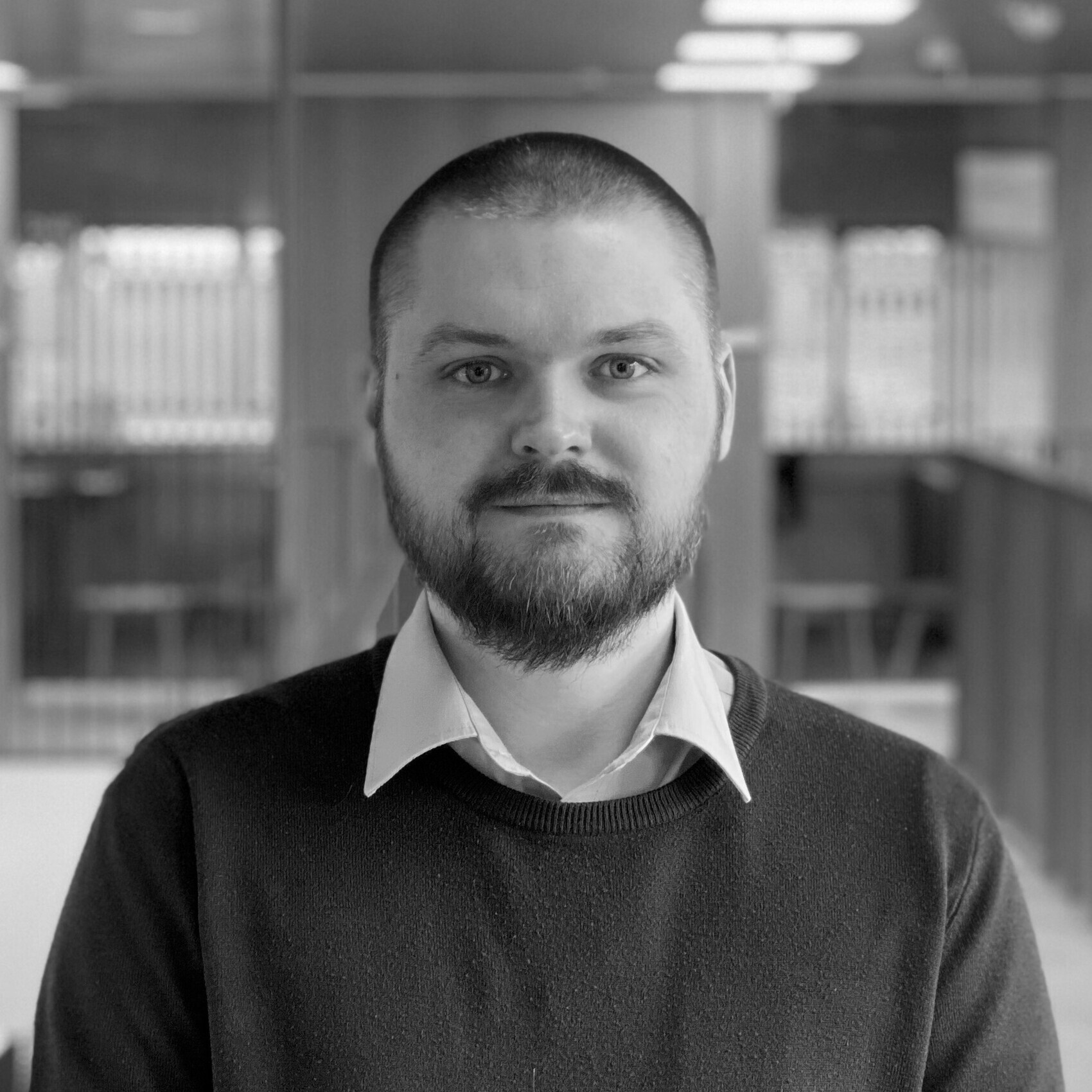
Gareth Millward joins DIAS as Fellow of History
As of February 1st, Dr. Gareth Millward has joined Danish Institute for Advanced Study as Fellow of History with Chair of Humanities Klaus Petersen as mentor.
Gareth Millward has a Ph.D. from the London School of Hygiene & Tropical Medicine. His thesis focused on the relationship between disability voluntary organizations and the development of what we now call “disability policy” in the United Kingdom after the Second World War. Furthermore, he has held post-doctoral positions at the London School of Hygiene & Tropical Medicine, the University of Warwick and the University of Birmingham. Here he worked on topics as diverse as vaccination policy, medical certification, and the interaction between voluntary and state institutions in Britain’s National Health Service.
By his own account, Millward was inspired to become a part of DIAS after seeing the work that was being done across the institute and SDU, especially by now-colleagues Senior Fellow of Humanities Jeppe Nevers and aforementioned Klaus Petersen. Their work made him reflect on his own research and teaching and he realised he could do a lot more – even though Millward joins DIAS as an already accomplished scholar, with his third book Sick Note: A History of the British Welfare State due to be published by Oxford University Press later this year. Happily, the feeling of anticipation and inspiration is mutual between mentor and mentee, with Petersen looking equally forward to sharing the DIAS House with a fellow interdisciplinary historian:
“Gareth comes with a very interesting profile for DIAS. He has experience working in a cross-disciplinary setting involving both public health scholars and historians – and his work on topics like vaccines and sickness addresses important research discussions that are already ongoing within DIAS. His interest in using web archives – a quite innovative approach within the history discipline – also links with research interests of both social scientists and colleagues from various disciplines interested in analyzing digital qualitative data. I see a lot of potential for cooperation within the DIAS framework in the coming years.”
Gareth Millward identifies as a historian but got his Ph.D. and first post-doc in a public health school. This has forced him to engage with researchers and students with very different methodological backgrounds than his own. He had to constantly assess how to communicate the value of his work to people who did not necessarily speak the same academic language as his backing in the history of medicine. At DIAS he seizes the chance centralise this interdisciplinarity in his research, which is one of the core strengths of his academic profile, according to Director Marianne Holmer:
“Gareth brings in modern history to DIAS, which has a large potential for initiating collaboration across several disciplines in DIAS. I am looking very much forward to follow his research in the coming years.”
New strategies and questions to welfare states
Gareth Millward has a strong track record within the history of public health. He has a special interest in how the British welfare state developed during the twentieth and twenty-first centuries, particularly in health and social security. What fascinates him is how the design of welfare services informs and is informed by lay understanding of the expectations to welfare and the tensions caused when this common-sense idea of justice does not match the day-to-day operation of state services. He is also riveted on using and developing new methodologies around using archived internet sources to tell social, political, and cultural histories of the turn of the millennium.
At DIAS he is keen to work with others on completely new projects, using the unique freedom as a DIAS fellow to explore new ways of working and topics to explore. In its own right, he explains, the fellowship is an amazing opportunity to do innovative interdisciplinary and collaborative research. The hope is also that it will become a steppingstone to even bigger projects in the future on the history and politics of welfare states: The subject becomes increasingly relevant to our daily lives as the effects of long-term economic contraction, globalisation and the climate crisis force us to ask new questions about what our states are and what they ought to be.
The fellowship at DIAS is Millwards first academic endeavour outside of the UK:
“Everything looks shiny and new, including having to learn Danish, cycle on the righthand side of the road and buy new electrical plugs for my television”.
He looks forward to using time in Denmark to build his international networks and considering how expertise from different disciplines can improve our understanding of welfare states in different times and places. This does not, however, mean Millward will completely cut his connection with the field back in Britain - on the contrary, he’s being encouraged to maintain and strengthen his old ties in the British history of the welfare state:
“Being able to grow rather than having to start again from scratch is a unique opportunity, and I can’t wait to properly begin the job”.